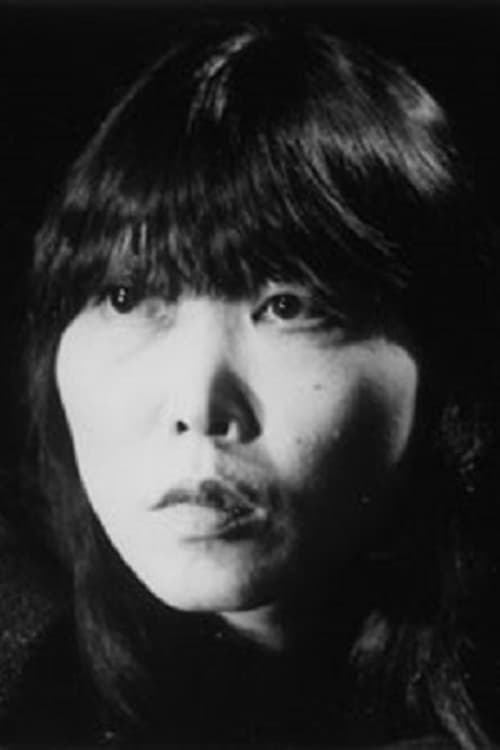Rio Kishida
Nacimiento : 1946-01-03, Okaya, Nagano Prefecture, Japan
Muerte : 2003-06-28
Historia
Rio Kishida was a Japanese playwright and director. She wrote several plays about women and the problems they faced in a patriarchal society that run parallel with the second wave of the feminist movement in Japan.

Director

Director

Writer
Naran and his five brothers and sisters are returning to the family farm for summer. During the rest of the year, they must attend school in the city. Once they arrive, the family heads off to summer pastures for their horses and sheep. One day, Naran meets a lone minstrel and hears the tale of Sukh and his white horse who win the great Naadam horse race. Naran is deeply moved and swears that he will compete in the race with his own beloved white horse.

Screenplay

Screenplay
When a team of detectives lose the trail of a murderer, they decide to keep an eye on the suspect’s ex-lover, who is trapped in an abusive marriage.

Writer

Writer

Screenplay
A decadent count in 1920′s Japan becomes obsessed with the life and works of the Marquis de Sade. He creates a theatre to show plays adapted from the notorious writer’s novels and recruits thieves, prostitutes and low lives to act out his fantasies on stage for the delectation of his rich, jaded friends. In search of new sensations the nobleman orders one of the actors, on pain of death, to make love to the nobleman’s wife while he watches. Unfortunately, this incursion of real life into his fantasy world will have dire consequences for the count and his divinely decadent coterie.
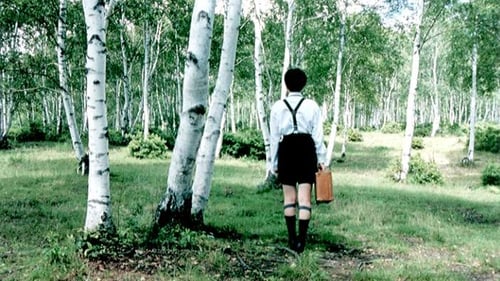
Screenplay
Summer Vacation tells the story of four teenage students who spend their summer vacation at school – unsupervised and untouched by the outside world.

Screenplay
Based on a polemic novel by Amy Yamada, Bedtime Eyes is about the intense love relationship between a second rate Japanese jazz singer and a black American GI on the margins of the law.

Screenplay
Nagare, a painter who wanted to commit a lover’s suicide with Mizue, the wife of his friend and patron Takigawa. Growing afraid at the last moment, he doesn’t go through with it – but Mizue sinks to the bottom of Blue Lake. Some time later, Nagare follows an invitation by Takigawa, who claims to have forgiven everything. To Nagare’s shock, Takigawa’s new wife, Ameko, looks exactly like Mizue. While staying as Takigawa’s guest, Nagare becomes haunted by Mizue’s ghost, who wants to be reunited with him at the bottom of Blue Lake.

Screenplay
Musical film: Hiromi Go plays a warrior, a gigolo, and an officer spread across a thousand years of history
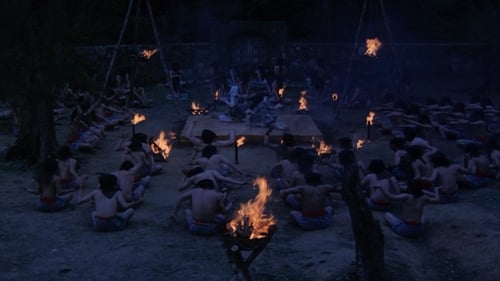
Screenplay
Su-e (Mayumi Ogawa) y su primo Sutekichi (Tsutomu Yamazaki), quieren vivir juntos, pero su padre les prohibe tener contacto sexual. Al igual que otros lugareños, creen que si tienen hijos primos juntos, los niños sufrirán graves defectos de nacimiento. Su remedio es escapar con Su-e. Después de algún tiempo transcurrido, los dos hacen el camino de regreso a la aldea, pero para entonces Sutekichi sufrirá los efectos de sus acciones.
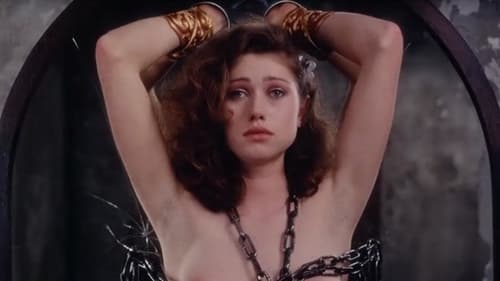
Writer
Secuela espiritual de "La historia de O". “Les Fruits de la Passion” es un melodrama erótico ambientado en el Hong Kong de los años 20. Kinski, un europeo decadente con negocios en la ciudad, envía a su mujer a un burdel para profundizar en su amor física y espiritualmente. El tema de la sumisión, del sufrimiento y la ofensa que aparecían en la cinta de 1975 son retomados aquí, en cuyo burdel de fantasía se muestran viñetas de tortura, fetichismo y perversiones diversas. “O” debe renunciar a cualquier deseo para amar completamente a Sir Stephen, quien se deleita martirizándola mostrándole como ama también a otra mujer, Nathalie, interpretada por Arielle Dombasle. El trío se rompe cuando un cuarto personaje, un joven que envía flores a la bella encarcelada, se introduce entre la pareja protagonista para hacer suya a “O”.

Screenplay
17 year old Saki lives in a run-down hack with her mom who survives by pushing a food cart from dawn to dusk. Saki has dropped out of school, and when she's not helping her mother selling noodles in the streets, she's playing flesh-games with boyfriend Sotoo. In her spare time, the girl also entertains a truck driver named Ataru. She believes her promiscuity is a trait inherited from her mom. Determined to improve her lot in life (she doesn't want to grow up like her mother), Saki decides to stop seeing the two guys. The sizzling Japanese Tatsumi Kumashiro’s erotic drama 'Shoujo Shofu: Kemonomichi' (aka 'Whore Girl - the Animal Trail' distributed internationally as 'Path of the Beast'), offers a venue for sex kitten Ayako Yoshimura to reveal choice areas of her nubile frame.

Screenplay
Película compuesta por tres historias. En la primera, un náufrago llega a una isla paradisíaca y encuentra una mujer semidesnuda, juguetona y complaciente. En la segunda, un adolescente intenta recordar la letra de una canción de cuna, lo cual le conduce a fantasías sexuales y edípicas. En la tercera, un hombre rico en el París del siglo XIX contrata a una prostituta por una sola noche.

Writer
Akira is haunted by a "bouncing ball" song that he remembers his mother singing when he was a small child, and now on the verge of a sexually active adulthood, he wants to find the origins of the song. The young man ostensibly wanders into a time-warp in which aspects from his childhood and adulthood mix together. In this never-never land he comes across a beautiful woman/witch who is lost inside the labyrinth of her mansion, just as the young man is lost in the labyrinth of time — and on some levels, perhaps the labyrinth of his subconscious.

Writer
Shuji Terayama and J.A.Seazer's phantasmagoric folk-psych-symph-prog-rock opera. Historical Tenjo Sajiki performance from 1978.
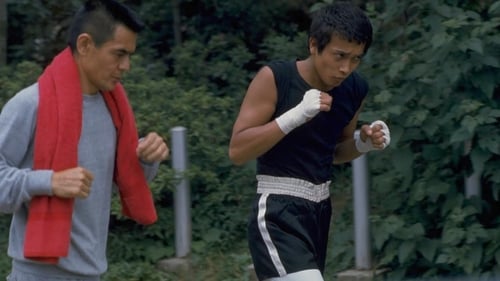
Screenplay
In the midst of a match, a successful boxer - Hayato, has had enough of the sport. He lets himself get knocked, quits boxing, leaving his wife and start living alone with his mangy dog. One day a young mediocre boxer knocks at the door and wants to be Hayatos apprentice.

Screenplay
Using bluescreen video techniques, Terayama playfully—and with a silent film theatricality—posits a series of postmodern vignettes featuring realities-within-realities as his protagonist attempts some kind of relationship with a nude woman on the screen-within-the-screen. In his struggles to “free” her, he exposes the absurd flimsiness, deceptiveness and mutability of both the cinema experience and our human dimension.

Screenplay
Akira and Hiroshi are two lowlives who hang around pachinko parlours. Hiroshi is a ladies' man but always loses at pachinko. Akira is a virgin at 25 but always wins. Hiroshi tries to get Akira laid with little success but things change when Akira is informed of a 88 million yen inheritance.
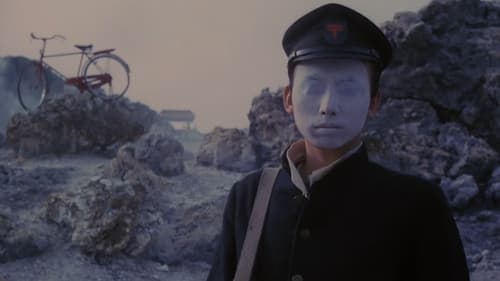
Assistant Director
Un chico decide escapar de su casa con la mujer de su vecino porque está enamorado de ella.
